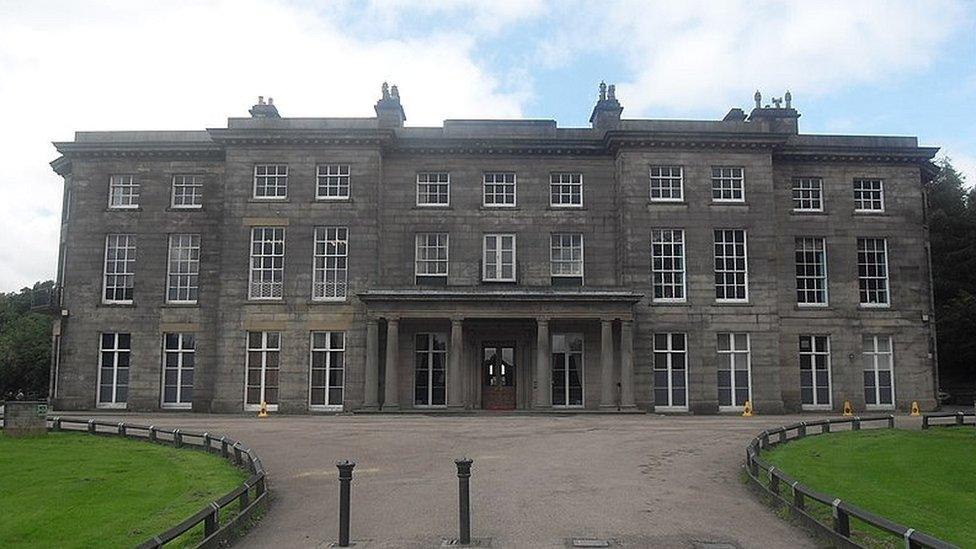Northern Roots: Urban farm's first growing season tough, team says
- Published
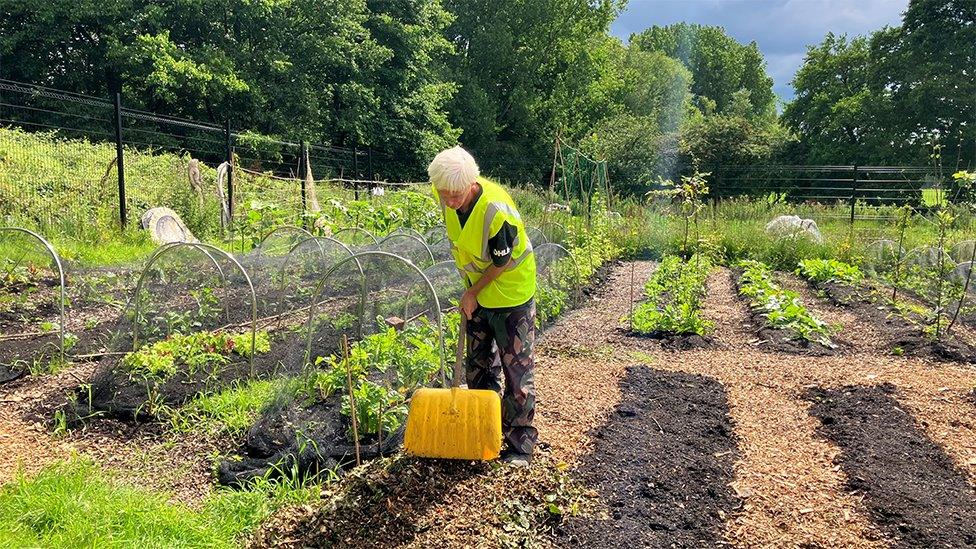
Volunteers are preparing to harvest leeks, aubergines, carrots and potatoes which are being grown at the site
Volunteers and staff at the UK's largest urban farm and eco-park have said its first growing season has been tough because of the unusual weather.
The multimillion-pound Northern Roots in Oldham faced a very hot and dry May, before being hit by Greater Manchester's wettest July on record.
Farm and landscape manager Georgia Forsyth Sijpestijn said there was also "frost damage" at the start of 2023.
However, volunteer John Drydale added that some plants had coped well.
The farm's team have been preparing to harvest leeks, aubergines, carrots and potatoes, which have been grown on the 160-acre regeneration site near Alexandra Park.
It is hoped the project will create jobs and business opportunities for local people and attract about 100,000 visitors a year, while preserving the site's biodiversity and environmental value.
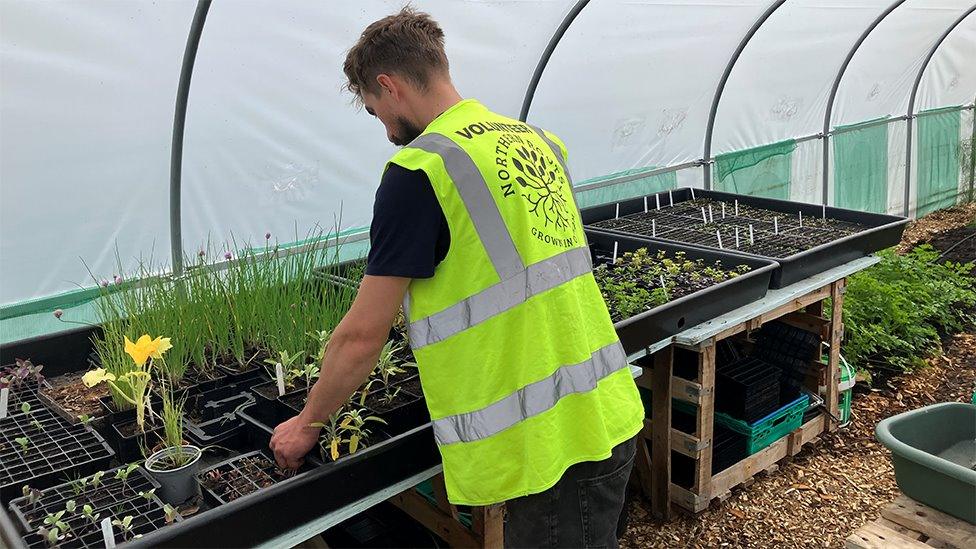
It is hoped the project will create jobs and business opportunities for local people
Ms Forsyth Sijpestijn told BBC Radio Manchester the team had worked hard in challenging conditions during its first growing season.
"At the start of the year, we took some of our crops into our polytunnels and they got frost damage," she said.
"We had the really hot spell in May when some of crops got heat stress damage.
"In July, the wet weather has meant more slugs and some of the tomatoes haven't grown that well, because it's not been sunny".
Mr Drydale, who lives on the other side of town in Royton, said the volunteers had been "planting rhubarb, tomatoes and carrots" and the vegetables were "looking brilliant".
"Every Thursday I come here and I really enjoy it," he said.
"People should come here and join us".
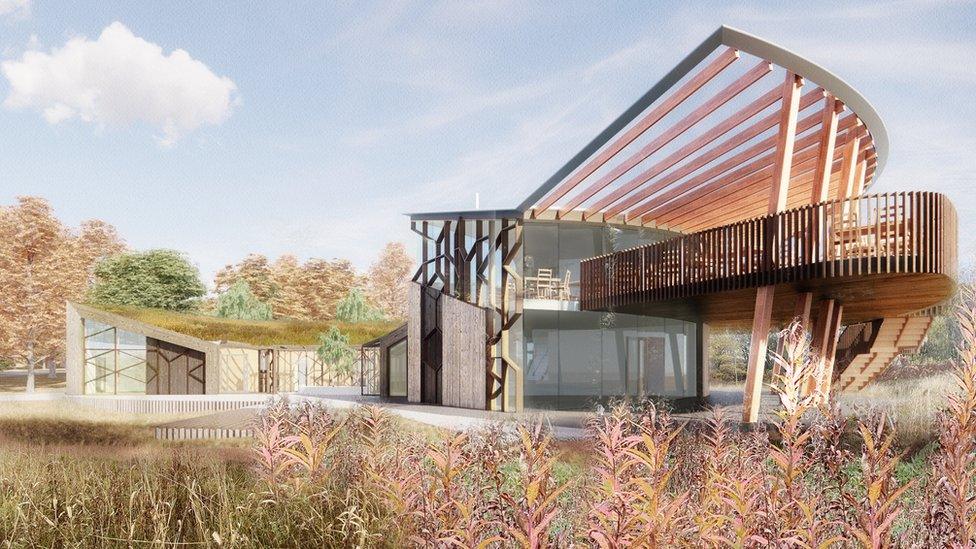
Council bosses hope the attraction - seen here in an artist's impression - could attract 100,000 visitors a year
The site is undergoing many changes as the eco-park takes shape and two striking buildings, a learning centre and a visitor centre, will be built on the site, which will house classrooms, a cafe, an exhibition space and a shop.
Work has also been taking place to manage the woodland in the area.
Ranger Sam Clayton said he had been "surveying the site to pinpoint the trees which had been suffering from Ash dieback disease".
"You need to do that in summer while the trees are in leaf, so you can see what's dead and what's alive," he said.
"After that, we can see what we need to fell and remove because the branches have become dangerous."
Plans have also been approved for a £5m bridge between Oldham and Tameside, which will cross the River Medlock at Park Bridge just under two miles away and link to the southern end of of the site.
Oldham Council previously said the crossing, which will replace a brick railway viaduct, which was demolished in 1971, would be a "new landmark within the Medlock Valley and Park Bridge, which celebrates the local landscape and industrial heritage of the area".

Why not follow BBC North West on Facebook, external, Twitter, external and Instagram, external? You can also send story ideas to northwest.newsonline@bbc.co.uk
Related topics
- Published31 March 2023
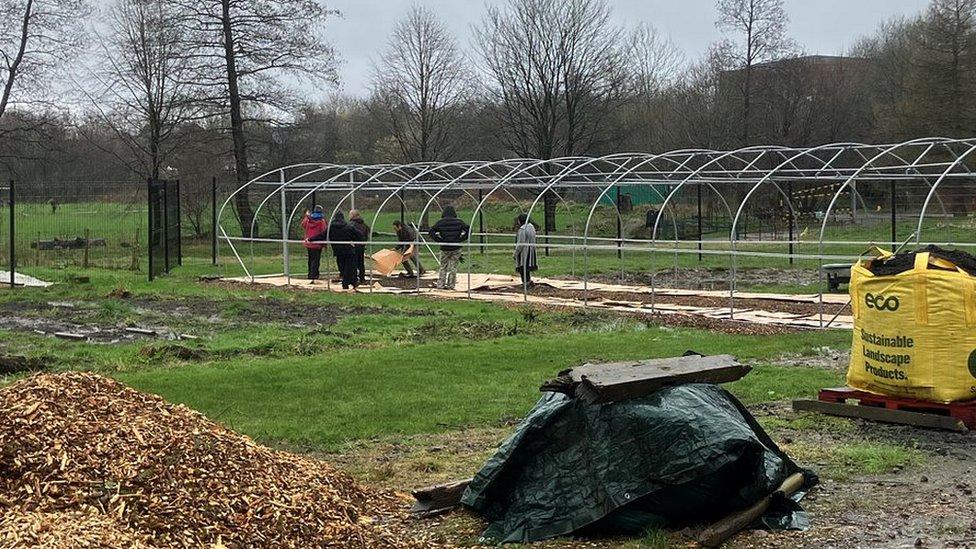
- Published17 May 2022
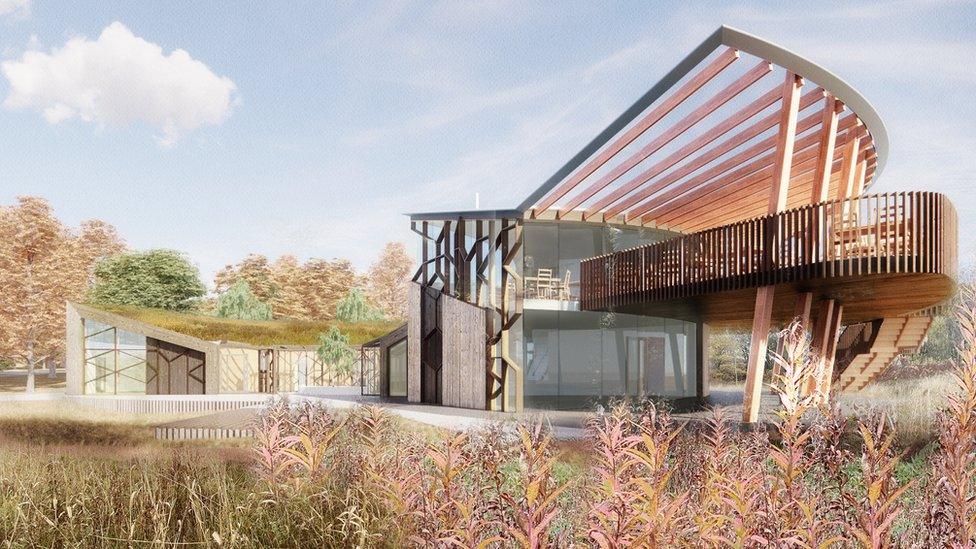
- Published19 January 2023
